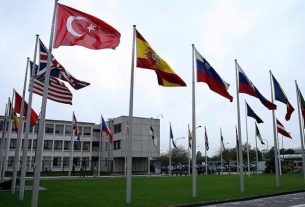Pakistan on Friday reached a staff-level agreement with the IMF for a new $7 billion loan with the International Monetary Fund (IMF) to support its economy as well as deal with its debts.
Earlier this year, the IMF approved the immediate release of the final $1.1 billion tranche of a $3 billion bailout to Pakistan. Finance Minister Muhammad Aurangzeb said the government planned to seek a long-term loan to help stabilize the economy after the end of that bailout package.
The new loan deal will last for 37 months. It is aimed at strengthening fiscal and monetary policy as well as reforms to broaden the tax base, improve the management of state-owned enterprises, strengthen competition, secure a level playing field for investment, enhance human capital, and scale up social protection through increased generosity and coverage in a major welfare program, the IMF said.
“The program aims to capitalize on the hard-won macroeconomic stability achieved over the past year by furthering efforts to strengthen public finances, reduce inflation, rebuild external buffers and remove economic distortions to spur private sector-led growth,” said Nathan Porter, IMF’s mission chief to Pakistan.
The agreement is subject to approval by the IMF’s executive board.
Pakistan’s new coalition government presented its first budget in parliament last month, promising an increase of up to 25% in the salaries of government employees and setting an ambitious tax collection target.
The finance minister said Pakistan wants to collect 13 trillion rupees ($44 billion) in taxes, which would be 40% more than in the current fiscal year.
Aurangzeb also said the government will ensure that the number of taxpayers increases. Only about 5 million people in Pakistan pay taxes.
Analysts said the new budget of about $68 billion — up from $50 billion in the last fiscal year — was aimed at qualifying for a long-term IMF loan of $6 billion to $8 billion to help stabilize the economy. Pakistan in 2023 nearly defaulted on the payment of foreign debts.__The Nation





